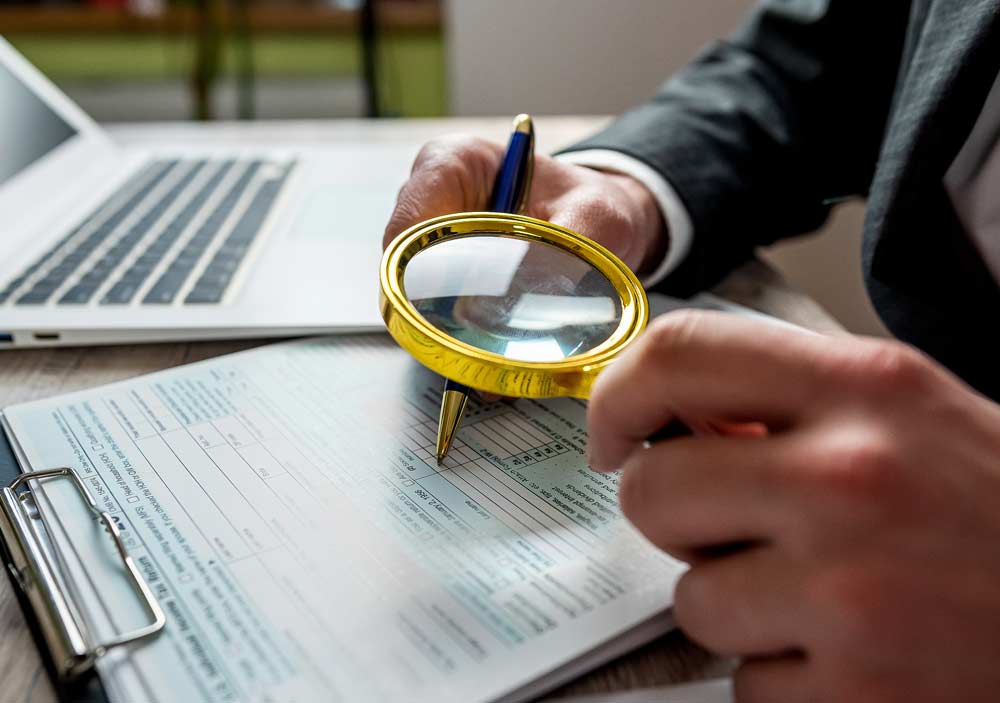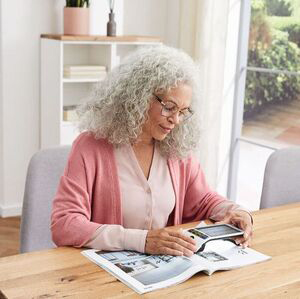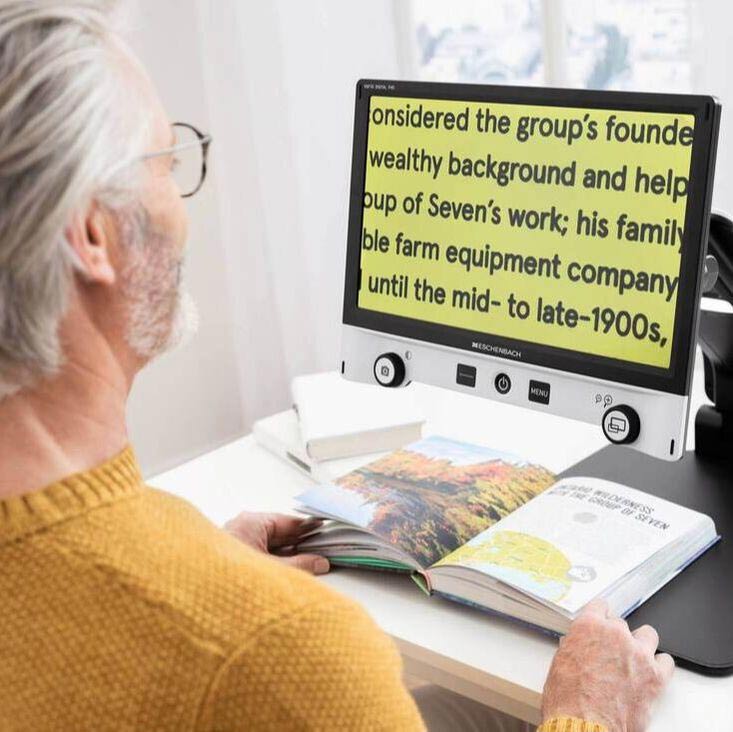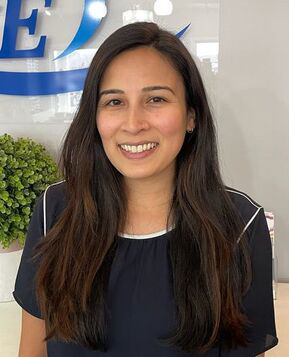Orange, CT
Diagnosis and Treatment
for Low Vision

Orange, CT
Diagnosis and Treatment for Low Vision
Improve your quality of life with low vision aids
When you have low vision, it can significantly disrupt your daily life. Someone with low vision may struggle to see objects at varying distances, recognize faces, or navigate their surroundings. Everyday activities like reading, watching television, using a computer, cooking, or driving can also be more challenging. At Family Eyecare of Orange, we offer low vision treatment in Orange, Connecticut to help patients make the most of their remaining vision.
What is low vision?
Low vision is a condition that cannot be corrected with standard glasses, contact lenses, medication, or surgery. A variety of eye disorders (many age-related) can cause an individual to become visually impaired, including macular degeneration, diabetic retinopathy, glaucoma, and retinitis pigmentosa.
Is low vision common?
Yes! Low vision is the third most common physical impairment in adults over 65, following heart disease and arthritis. With low vision care, many visually impaired people have found the help they need.
What is low vision care?
Low vision care is the evaluation and management of visual impairments by eye care and vision rehabilitation professionals. The goal is to help individuals overcome the handicapping effects of their visual impairment. Treatment plans are tailored to each patient’s lifestyle needs and vision goals and may include the recommendation of products known as low vision aids.
What are low vision aids?
Low vision aids (or simply vision aids) are special lens systems designed to magnify or illuminate images to improve one’s functional vision.
Types of low vision aids
At Family Eyecare of Orange, we offer a variety of low vision treatment options in Orange to help improve your visual functioning and overall quality of life. These include:

Hand-held magnifiers
Hand-held magnifiers are ideal for close-up tasks such as reading menus, price tags, maps, or prescription bottles.

Stand magnifiers
Stand magnifiers are great for extended visual tasks like reading books and newspapers or writing notes.

Spectacle magnifiers
Spectacle magnifiers are a hands-free solution that helps make reading books, letters, and newspapers easier.

Telescopic vision aids
Telescopes can be used for distance viewing, such as watching television, and close-up tasks like knitting, sewing, and doing crafts.

Absorptive filters
Filters help reduce glare and improve contrast, so viewing is more comfortable. They can also assist with night driving and reduce eye strain while using digital devices.

Video magnifiers
Electronic magnifiers provide extended magnification and allow for different contrast modes.
Who is a good candidate for low vision aids?
Our low vision services in Orange can benefit a range of people, including:
- Visually impaired individuals: Vision of 20/70 or worse, even when using corrective lenses.
- Legally blind individuals: Vision of 20/100 or worse with corrective lenses.
- Patients who have trouble seeing clearly at any distance, despite wearing their latest prescription glasses.
If you are struggling with low vision and looking for a low vision specialist near you, please schedule an appointment with us today.

